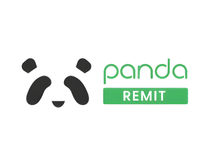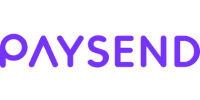The best, fastest & cheapest ways to send money to Morocco
Compare money transfer services and find the cheapest and easiest ways to make money transfers to Morocco.
Learn how to secure the best MAD exchange rates at the lowest transfer fees, ensuring a smooth and easy transfer process.
If you just need the best service for MAD transfers, it is Wise. Out of 13 companies tested that support MAD, they appeared 100% of the time as the top-rated provider in our comparisons.
Otherwise, keep reading for expert tips, top MAD transfer deals, and everything you need to know about transferring money to Morocco.
Send money to Morocco
"Over 16 million customers use Wise, mostly for their excellent mobile app, transparent fee structure & use of mid-market rates. Now increasingly used for larger transfers."
"Over 16 million customers use Wise, mostly for their excellent mobile app, transparent fee structure & use of mid-market rates. Now increasingly used for larger transfers."
"Over 16 million customers use Wise, mostly for their excellent mobile app, transparent fee structure & use of mid-market rates. Now increasingly used for larger transfers."
"Xe has over 30 years of currency exchange experience, and is one of the most reputable names on the market. 200 countries, 100 currencies, & funds often received in seconds."
"Xe has over 30 years of currency exchange experience, and is one of the most reputable names on the market. 200 countries, 100 currencies, & funds often received in seconds."
"Xe has over 30 years of currency exchange experience, and is one of the most reputable names on the market. 200 countries, 100 currencies, & funds often received in seconds."
"Over 16 million customers use Wise, mostly for their excellent mobile app, transparent fee structure & use of mid-market rates. Now increasingly used for larger transfers."
"Over 16 million customers use Wise, mostly for their excellent mobile app, transparent fee structure & use of mid-market rates. Now increasingly used for larger transfers."
"Over 16 million customers use Wise, mostly for their excellent mobile app, transparent fee structure & use of mid-market rates. Now increasingly used for larger transfers."
"Revolut has 50+ million customers globally. You can hold up to 36 currencies in the app and send money quickly in 70+ currencies to 160+ countries."
"Revolut has 50+ million customers globally. You can hold up to 36 currencies in the app and send money quickly in 70+ currencies to 160+ countries."
"Revolut has 50+ million customers globally. You can hold up to 36 currencies in the app and send money quickly in 70+ currencies to 160+ countries."
"Key Currency offers a personal service with a dedicated account manager. There are no transfer limits or fees which is perfect for larger send amounts."
"Key Currency offers a personal service with a dedicated account manager. There are no transfer limits or fees which is perfect for larger send amounts."
"Key Currency offers a personal service with a dedicated account manager. There are no transfer limits or fees which is perfect for larger send amounts."
"Xe has over 30 years of currency exchange experience, and is one of the most reputable names on the market. 200 countries, 100 currencies, & funds often received in seconds."
"Xe has over 30 years of currency exchange experience, and is one of the most reputable names on the market. 200 countries, 100 currencies, & funds often received in seconds."
"Xe has over 30 years of currency exchange experience, and is one of the most reputable names on the market. 200 countries, 100 currencies, & funds often received in seconds."
"OFX have been helping individuals and businesses send money for over 25 years. Transfer in 50+ currencies to 170+ countries, with 24/7 phone access to currency experts."
"OFX have been helping individuals and businesses send money for over 25 years. Transfer in 50+ currencies to 170+ countries, with 24/7 phone access to currency experts."
"OFX have been helping individuals and businesses send money for over 25 years. Transfer in 50+ currencies to 170+ countries, with 24/7 phone access to currency experts."
"Lumon has cared for over 69,000 customers since 2000. Get support for larger transfers from dedicated currency specialists."
"Lumon has cared for over 69,000 customers since 2000. Get support for larger transfers from dedicated currency specialists."
"Lumon has cared for over 69,000 customers since 2000. Get support for larger transfers from dedicated currency specialists."
"Xoom, a PayPal service, allows you to send money in more than 160 countries. You can send cash for over-the-counter pickup or home delivery, as well as send by bank transfer or debit card."
"Xoom, a PayPal service, allows you to send money in more than 160 countries. You can send cash for over-the-counter pickup or home delivery, as well as send by bank transfer or debit card."
"Xoom, a PayPal service, allows you to send money in more than 160 countries. You can send cash for over-the-counter pickup or home delivery, as well as send by bank transfer or debit card."
"Sendwave is trusted by over 1 million users across the US, UK, Canada and EU. 24/7 support is available online and via the app."
"Sendwave is trusted by over 1 million users across the US, UK, Canada and EU. 24/7 support is available online and via the app."
"Sendwave is trusted by over 1 million users across the US, UK, Canada and EU. 24/7 support is available online and via the app."
"Fast, secure internatinal transfers with no fees and transparent rates. They offer a free currency card for use at home and abroad."
"Fast, secure internatinal transfers with no fees and transparent rates. They offer a free currency card for use at home and abroad."
"Fast, secure internatinal transfers with no fees and transparent rates. They offer a free currency card for use at home and abroad."
"Send money to over 40 destinations online and in the mobile app."
"Send money to over 40 destinations online and in the mobile app."
"Send money to over 40 destinations online and in the mobile app."
"Paysend has transparent fees and rates, with transfer sent within seconds to your recipient's bank. They also have global 24/7 support for any enquiries, and bank-level security."
"Paysend has transparent fees and rates, with transfer sent within seconds to your recipient's bank. They also have global 24/7 support for any enquiries, and bank-level security."
"Paysend has transparent fees and rates, with transfer sent within seconds to your recipient's bank. They also have global 24/7 support for any enquiries, and bank-level security."
"Moneycorp is an established player in the market, with a focus on private clients and corporates. Make overseas payments in over 120 currencies and 190 countries."
"Moneycorp is an established player in the market, with a focus on private clients and corporates. Make overseas payments in over 120 currencies and 190 countries."
"Moneycorp is an established player in the market, with a focus on private clients and corporates. Make overseas payments in over 120 currencies and 190 countries."
"Moneygram is a well established service with over 80 years in the sector. They support over 200 countries worldwide and have over 440,000 retail locations."
"Moneygram is a well established service with over 80 years in the sector. They support over 200 countries worldwide and have over 440,000 retail locations."
"Moneygram is a well established service with over 80 years in the sector. They support over 200 countries worldwide and have over 440,000 retail locations."
How to get the best rate for money transfers to Morocco
Always compare rates
Don't pay more than you need to. Use our live comparison tool to ensure you aren't missing the best MAD rates.
Choose a provider
Select the provider that fits your transfer needs and will get you the most MAD for the lowest fee.
Click, sign up & send
Follow the steps & make your transfer. Your MAD will soon reach the recipient.
The best way to send money to Morocco: Wise
After reviewing and testing 13 money transfer providers supporting MAD transfers, we found Wise to be the top choice for money transfers to Morocco as of February 2026.
With quick transfers, a low markup of -0.03% on MAD exchange rates, and a low fee of $142.54, Wise offers the ideal balance of cost, speed, and features for MAD transfers.
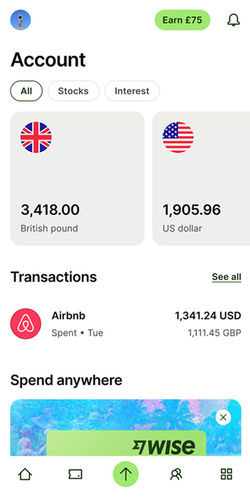
Cheapest way to send money to Morocco: Key Currency
If you want to make the most of your MAD transfer, the cheapest way is to use Key Currency and pay for your transfer with a bank transfer.
With just $0 in fees and 0.25% markup, Key Currency is 0.11% cheaper than the next best option.
With Wise, if you were to send 7,000 USD to MAD, your recipient would get 63,856.74 Moroccan Dirham, this is more than with other providers on our list.
*Based on 7,000 USD transfer.

Panda Remit is the fastest way to send money to Morocco
With Panda Remit, the transfer time to Morocco is minutes - 24 hours.
charges $4 and adds a markup of 0.3% on top of the MAD exchange rate. This is 0% cheaper than the next best option as of February 2026.
For the best combination of speed and cost, we recommend using a to fund your transfer to Morocco.
*This is based on a $7,000 transfer to Morocco.
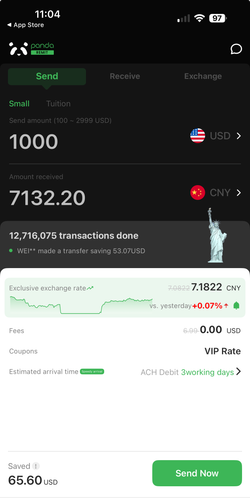
The easiest way to send money to Morocco: Wise
They offer transparent fees, charging $142.54 per transfer with -0.03% markup added to the MAD rate.
Getting started with Wise takes less than 3 minutes, making it a fast, affordable, and user-friendly choice for sending Moroccan Dirham.

Consider this before sending money to Morocco
Before sending money to Morocco, it’s important to compare providers.
The amount of Moroccan Dirhams (MAD) your recipient receives can vary significantly depending on the provider, your payment method, and the amount you send.
Based on our data:
Key Currency is the cheapest
Panda Remit offered the fastest transfer speeds
Wise consistently had the best MAD exchange rates
Sending large amounts of money to Morocco
Sending large amounts to Morocco can be expensive. You should consider the exchange rate, transfer limits, customer service, safety, company experience with large transfers, and any legal requirements in Morocco.
In this case, Wise ticks all the boxes. Out of 13 money transfer companies serving Morocco, Wise came on top as the highest-rated company for MAD transfers.
Whether you are buying a property in Morocco, funding your education, having a destination wedding, or just need to send a lot of MAD, we recommend opting for a specialized provider such as Wise.
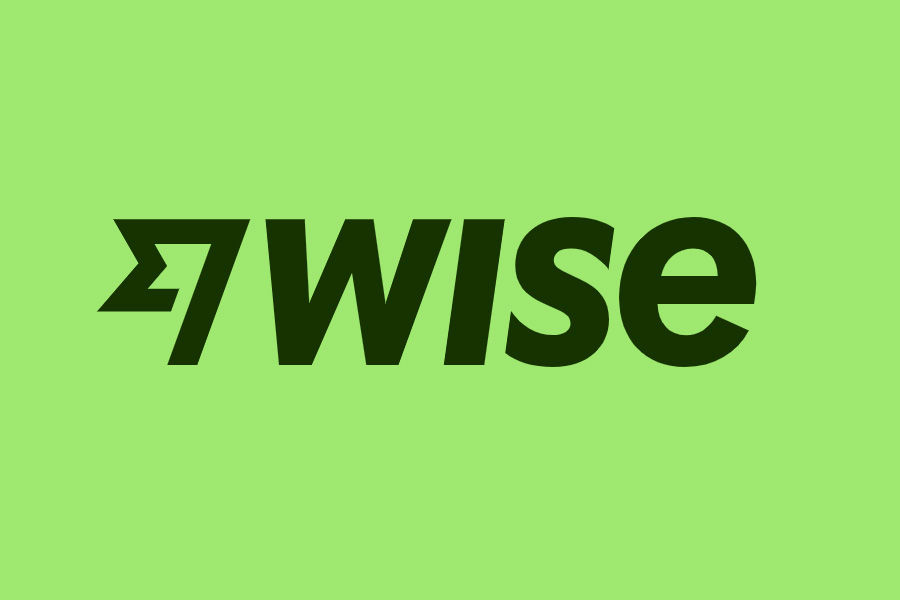
Understanding the costs involved when moving money to Morocco
When calculating the cost of money transfers to Morocco, here's what really matters: the country of origin, amount, payment method, fees, and the markup on the MAD exchange rate.
Exchange rate markup
This is a percentage added on top of the "real" MAD rate (known as the mid-market rate).
Wise, for example, offers the best exchange rate. It adds -0.03% markup to the USD-MAD exchange rate (9.1453 MAD - -0.03% per US Dollar).
Transfer fees
These are fixed and/or percentage fees added for the service when sending money to Morocco.
Let's imagine you want to send $7,000 from the US to Morocco.
After analyzing 13 companies supporting Moroccan Dirham, we found Key Currency to offer the lowest fees ( $0 in fees and 0.25% markup).
However, exact fees vary by deposit method and the service, for example:
Bank transfers vary from $0 to $490.00000000000006
Debit cards range from $0 to $0
Credit card fees vary a lot, mainly due to cash advance fees and/or additional fees from your credit card provider.

Getting the best MAD rate when sending money to Moroccan Dirham
The exchange rate is the value of the Moroccan Dirham (MAD) compared to other currencies. Since it consistently moves up and down, sending at the high will give your receiver more MAD compared to the low.
In the past 7 days, the MAD exchange rate reached:
An average rate of 9.1442 Moroccan Dirham per US Dollar
A high of 9.185 MAD per USD
And a low of 9.1175 MAD per US Dollar
The MAD/USD exchange rate has seen some movements. Making a transfer when the rate is close to 9.185 MAD/USD will result in more MAD received.
Wise is our top recommendation for sending Moroccan Dirham, offering a markup of -0.03% which is 0% better than the next cheapest option.
Get notified when it’s the best time to transfer Moroccan Dirham
Sign up for our rate alerts, and we’ll notify you when it’s the best time to send MAD!
Top payment methods to use for transfers to Morocco
Money transfer companies will offer different ways to fund your transfer to Morocco. Depending on the service used, deposit options can affect the speed, the cost of your transfer, and the amount of MAD received.
Bank transfers
Bank transfers are a standard deposit method used for sending money to Morocco. Almost all services covering Morocco offer it.
Bank transfers to Morocco are usually cheaper than other deposit methods but can take up to 3 business days for MAD to reach Morocco.
Out of 13 providers we’ve tested, we found Key Currency to be the cheapest for bank deposits, with just $0 per transfer and a 0.25% markup. This is 0.11% cheaper than the second-best option.
When possible, avoid using wire transfers over the SWIFT network for MAD transfers. It is slower and more expensive due to intermediaries involved, instead, look for an ACH deposit option.

Debit and prepaid cards
Debit card transfers to MA are usually faster than bank transfers.
Most MAD transfers can take up to a few hours but it can be slightly more expensive.
We recommend using Paysend if you want to use a debit card or prepaid card to fund your money transfer to Morocco.
With Paysend, you can expect to pay $0 in fees and 1.54% markup when depositing money with a debit card. This is 0.01% cheaper than using the next best provider out of the 13 companies supporting MAD transfers we’ve tested.

Credit cards
You can also use a credit card to fund your transfer to Morocco.
We found a few options for credit card transfers out of 13 companies compared.
Credit card deposits are usually more expensive when sending money to Morocco, so if you can, use a bank transfer or debit card deposits so save on fees.
If you do need to make a CC deposit, we recommend running a .
Cash advance alert
Your credit card company may charge you a cash advance fee and offer higher interest rates for international transactions to MA. We recommend avoiding credit cards, and instead opt for a bank or debit card transfer.

How we analyze the market
We track the cost, speed, and product offerings of the leading money transfer services available in Morocco.
Our comparison engine and algorithms evaluate providers based on over 25 factors, including transfer fees, ease of use, exchange rates, mobile apps, transfer times & customer support.
We also consider how these services are rated on platforms like TrustPilot, AppStore, and Google Play, giving you a comprehensive view of what to expect.
This thorough analysis helps you get the best available deal - every time you want to move money to Morocco.
We also provide unbiased and detailed reviews of all the top money transfer companies. You can use these reviews to find the best service for your needs when sending money to Morocco
For a deeper understanding of our commitment to integrity and transparency, we invite you to read our editorial policy and review methodology.

Related transfer routes
Send money from Morocco
FAQs
Find answers to the most common questions on our dedicated FAQ page.
How much money can I transfer to Morocco, and are there any limits?
Are there tax implications when sending funds to Morocco?
What are the typical fees and exchange rates for sending MAD?
How long will it take for my money to reach Morocco?
Can I schedule regular MAD transfers?
What currency is used in Morocco?
Can I send MAD from any country?
How can I track my money transfer to Morocco, and what should I do if something goes wrong?
Is it better to use my bank for MAD transfers?
Can I use MoneyTransfers.com to money transfers?
Tools & resources
Contributors










